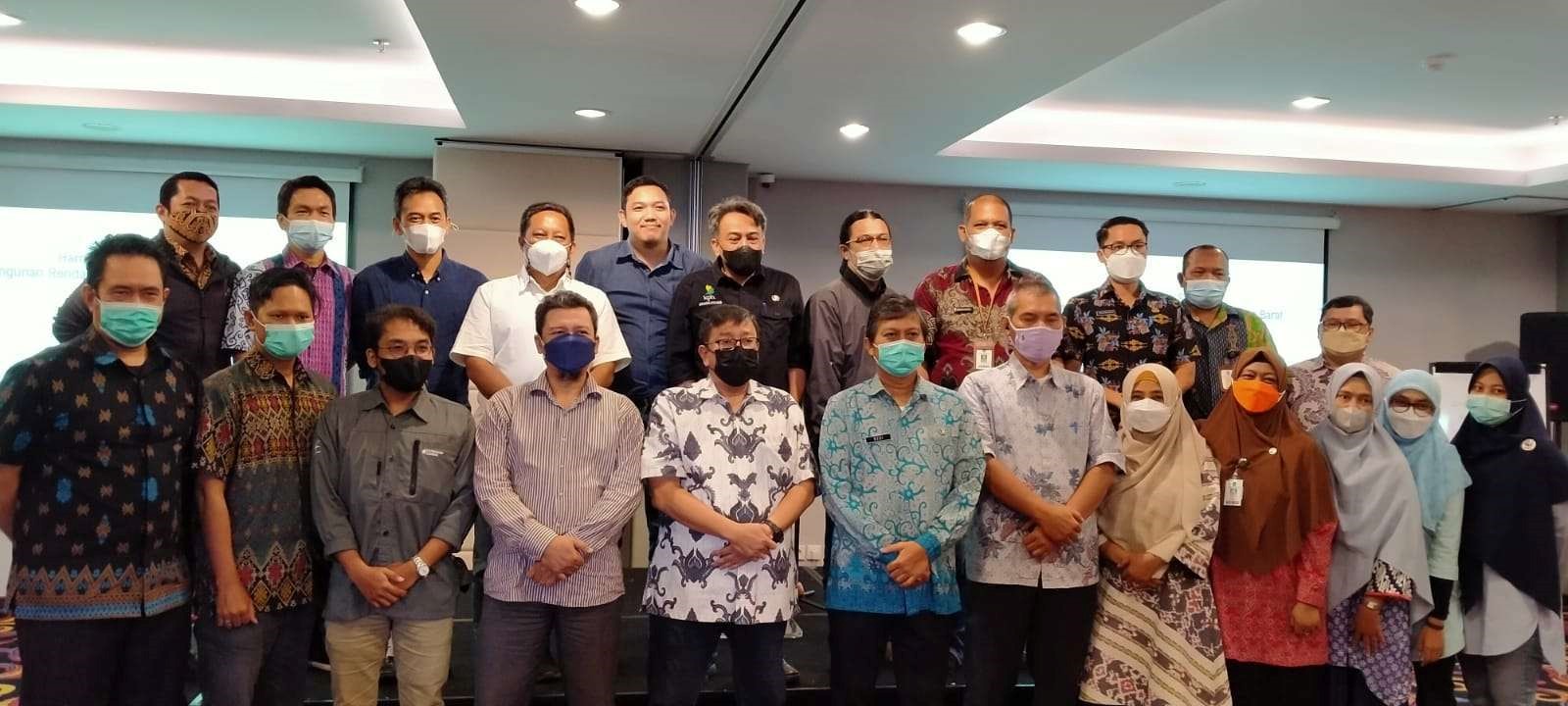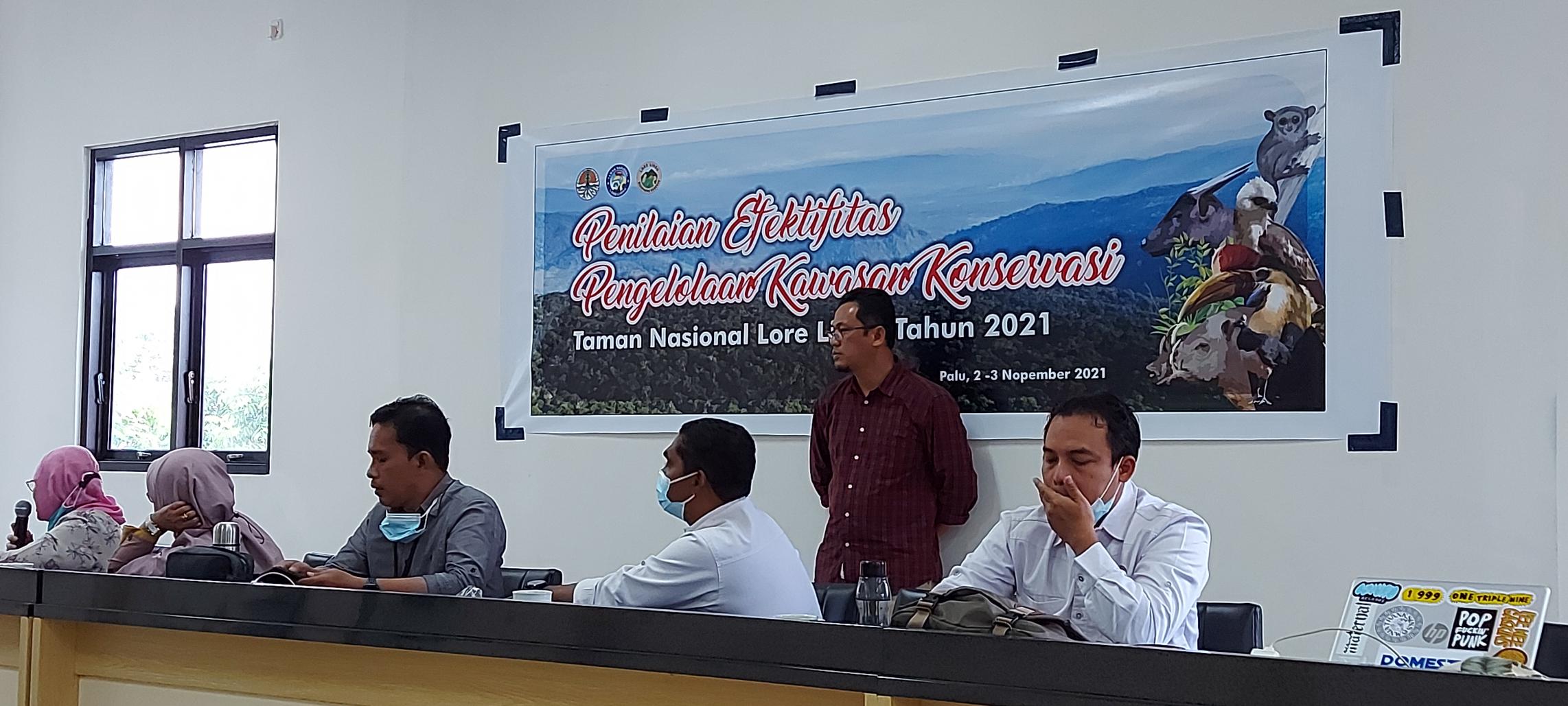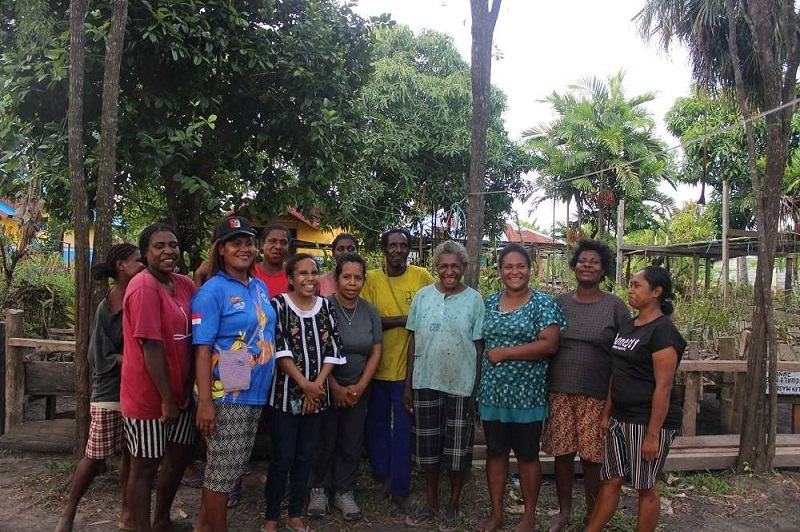FORCLIME
Forests and Climate Change ProgrammeTechnical Cooperation (TC Module)

Select your language

As stated in the REDD+ Provincial Action Plan Strategy for West Kalimantan, the province of West Kalimantan is committed to achieving an overall emissions reduction target of 60%. The synergy of the various parties involved, specifically the government and various local partners, will be required in order to achieve this ambitious target. The REDD+ Working Group, as a medium of communication and coordination for the parties involved in REDD+, is responsible for compiling data and information that relates to emission measurements and for reporting all climate-change-related activities. In this regard, various programs and activities undertaken by the parties have now been identified as not having been reported and must now therefore be integrated into the data and systems of the REDD+ Working Group. In order to tackle these issues, the REDD+ Working Group, in conjunction with FORCLIME, facilitated a recent a multi-stakeholder FGD aimed at synergizing and harmonizing emissions reduction programmes within the province of West Kalimantan.
The FGD was held on 11 November 2021 at the Ibis Hotel Pontianak and was attended by West Kalimantan Provincial Government agencies, the REDD+ Working Group and development partners responsible for the implementation of various programs and activities relating to emissions reduction. The FGD was opened by the Head of the Environment and Forestry Service of West Kalimantan Province, Ir. Adiyani, MH, who outlined the West Kalimantan Provincial Government’s commitment to reducing emissions through the establishment of the REDD+ Working Group in 2012 and the implementation of programs aimed at supporting the achievements of the West Kalimantan Province Vision and Mission regarding environmentally sound development.
In his presentation, Prof. Dr. Gusti Hardiansyah, MSc, QAM, as Chair of the REDD+ Working Group, outlined the role of the REDD+ Working Group as a node and medium of communication for the parties concerned, as well as the need for data harmonization in order to determine program distributions within each region, as implemented by the relevant parties.
This FGD resulted in a programme identification table drawn up by the local partners, as well as an activity location distribution. This table will be used in order to evaluate and measure forthcoming achievements against emissions reduction targets.
For more information, please contact:
Yenny, S.Hut, MT, Environment and Forestry Service of West Kalimantan Province, Member of the West Kalimantan REDD+ Working Group
Jumtani, Advisor for Sustainable Forest Management and GCF Focal Point
Wandojo Siswanto, Strategic Area Manager for Forest Policy and Climate Change

Assessment of the conservation area management effectiveness is important as the assessment process can serve as a forum for information sharing between management staff, and can ensure that the management is in accordance with the mandate of conservation area. In Indonesia, the method used to assess management effectiveness is the Management Effectiveness Tracking Tool (METT), which should be conducted every two years and covers six aspects, namely: (1) context, covering the legal status of the area, (2) planning, (3) input, (4) process, (5) output, and (6) outcome. This METT assessment can be done independently by each area manager, and can also involve the community around the area and other stakeholders, assisted by an independent facilitator for a more comprehensive and balanced or objective assessment result.
The Lore Lindu National Park Center (BBTN) last conducted the METT assessment in 2019 with a score of 74, and previously in 2017 with a score of 72. Therefore, this year BBTN Lore Lindu again conducted an assessment to assess the level of management effectiveness within the period of January 2020 to November 2021. METT assessment was held on 2-3 November 2021 at the BBTN Lore Lindu Office, Palu, Central Sulawesi. In this activity, FORCLIME, represented by Mr. Ismet Khaeruddin, together with Mr. Andhika Chandra, S.Hut, M.Sc as representatives from the Directorate of Conservation Area Management, Ministry of Environment and Forestry (KLHK), facilitated the METT assessment.
The result of the self-assessment shows an increase in management effectiveness with a METT score of 80, which is generally due to the implementation of the 2019 METT assessment recommendations. The result of this assessment will be reported and verified by the Directorate of Conservation Area Management KLHK, thus BBTN Lore Lindu needs to complete all the required documents as evidence and verification material.
For more information, please contact:
Ismet Khaeruddin, Senior Adviser for Biodiversity Focal Point for the KFW Forest Program 3 & Provincial Coordinator Central Sulawesi

In an effort to support capacity building and the development of conservation partnerships in the Wasur National Park (TN Wasur) area, a number of target villages will be selected as locations in which the joint program will be implemented by FORCLIME and the Wasur National Park. For this reason, FORCLIME, working in conjunction with the Wasur National Park, completed a baseline survey from 8 - 12 November 2021 across five villages that had previously been identified based on the results of joint discussions. The villages visited were Wasur, Yanggandur, Rawa Biru, Tomer and Erambu-Toray. The five villages represent the Marind Anim Tribe from the Men-Gey Marori Tribe, the Kanume Sub-tribe and the Yeinan Tribe.
The data and information collected encompassed the geographical conditions, demographics and socio-economic-cultural conditions of communities, as well as various institutions, including customary institutions, and also land ownership status in relation to natural resource management and potential non-timber forest products. A division of tasks was implemented as regards the collection of this data and information. Specifically, the FORCLIME Papua Team conducted direct interviews with the community, while the Wasur National Park Team provided secondary data. An analysis of the collected data was then subsequently carried out by the two teams working together.
One of the interesting discoveries that emerged from the results of interviews with these communities is how local wisdom is essentially the basic capital that is used during the management of natural resources and manifests itself through traditions that are still being implemented to this day. One of these traditions is the Sasi system, which is known as “Sar” in the Kanume language. This system comprises a set of customary rules that regulate various prohibitions on the use of natural resources in locations or hamlets during certain periods. Sasi also relates to respect for relatives who have died and ceremonies are usually held after 40 days have elapsed since the death of a deceased relative. The ceremonies themselves involve the closing of access to certain areas in accordance with family agreements, usually for periods of between one and four years. In this regard, a Sasi location are often marked, for example, through the installation of coconut leaf stakes.
Information relating to such local wisdom is also set to be included in the report that will be published on the implementation of the survey. The implementation of the Sasi system remains very strong, especially in the village of Yanggandur, which was designated as a supported village by the Wasur National Park through the issuance of Decree of the Director-General of Natural Resources and Ecosystem Conservation No. SK 80/KSDAE/SET/KSA.1/2/2017.
The results of the baseline survey will ultimately be reported to the Head of the Wasur National Park. Said results will then be discussed by the relevant parties in order to determine the locations of the target villages in which the join programme of FORCLIME and the Wasur National Park will be implemented.
For more information, please contact:
Rut M Ohoiwutun, Junior Adviser for Community Forestry and Hutan Adat, Papua
Theodora Florida Resubun, Adviser for Sustainable Forest Management and Coordinator for Papua Province
Mohammad Sidiq, Strategic Area Manager for Sustainable Forest Management and Coordinator for Papua and West Papua Provinces
 |
Supported By: |
  |